Teaching Visits for Faculty Spring 2015 (Archived)
Craig Smith, Associate Professor in Psychology and Human Development
 PSY-PC 1700: Social and Emotional Context of Cognition
PSY-PC 1700: Social and Emotional Context of Cognition
Craig Smith is Associate Professor of Psychology and Human Development as well as Associate Dean for Undergraduate Studies at Peabody College. In PSY-PC 1700, he works with students to understand how the ways we perceive the world impact a variety of cognitive processes, guiding the students through considerations of the social construction of reality and how it affects human behavior. In this teaching visit, students are beginning a unit on prejudice and discrimination. Craig will use a combination of lecture and discussion to help students consider the nature of racial stereotypes and how they are related to normal cognitive processes. In the post-visit discussion, we may discuss ways in which Craig structures the class to allow safe and open discussion about this and other difference- and power-related topics in the course.
Date: Friday, January 30th
Time: 11:10-1:25 (class, 11:10-12:25; discussion, 12:25-1:25)
Class location: Hobbs 100A
Discussion location: 203 Jesup Hall
Facilitator: Joe Bandy
Faculty of Any Rank REGISTER NOW
Paul Kramer, Associate Professor of History
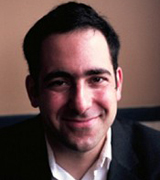 HIST 272: Debating America in the World
HIST 272: Debating America in the World
Paul Kramer is an associate professor of history and author of The Blood of Government: Race, Empire, the United States and the Philippines. In HIST 272, he guides upper level undergraduates as they consider the role of the United States in the world, considering issues of world leadership, power politics, and immigration control. The course is driven by primary documents, and seeks to help students develop an understanding of the U.S.’s evolving role within the world through carefully reconstructing arguments from period voices. Paul uses discussion, small group work, and role-playing to help students engage with the debates that have surrounded the U.S.’s shifting roles. In the post-visit discussion, we will discuss the pedagogical choices Paul makes, including how he helps students grapple with the influence of race and power on the U.S.’s global presence.
Date: Thursday, February 12th
Time: Class: 9:35-11:50 (class, 9:35-10:50; discussion, 10:50-11:50)
Class location: Calhoun 337
Discussion location: Calhoun 413B
Facilitator: Nancy Chick
Faculty of Any Rank REGISTER NOW
Lorraine Lopez, Associate Professor of English
 ENGL 199: Foundations of Literary Study
ENGL 199: Foundations of Literary Study
Imaginative Writing: Joining the Conversation Lorraine Lopez is an associate professor of English and co-director of Vanderbilt’s multidisciplinary program in Latino and Latina Studies. In this course, Lorraine helps her students consider the questions of what literature is and why it matters, using the students’ own creative work as a tool in this investigation. During the visit, Lorraine will guide students as they workshop five works of creative non-fiction written within the class, applying concepts and techniques from previous class discussion to a consideration of their own works. In the post-visit discussion, we will discuss how Lorraine scaffolds the class to help students develop the skills they need for this type of critique, including how she helps students see and negotiate power differences in considering others’ creative works.
Date: Tuesday, February 24th
Time: Class: 1:10-3:25 (class, 1:10-2:25; discussion, 2:25-3:35)
Class location: West Hall 107
Discussion location: West Hall 102
Facilitator: Nancy Chick
Faculty of Any Rank REGISTER NOW
Anita Mahadevan-Jansen, Orrin H. Ingram Professor of Biomedical Engineering
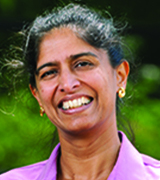 BME 260: Analysis of Biomedical Data
BME 260: Analysis of Biomedical Data
Anita Mahadevan-Jansen is a professor of Biomedical Engineering and director of CIRTL-at-Vanderbilt, an initiative focused on professional development of STEM graduate students and post-docs around teaching. In BME 260, Anita focuses on helping students develop transferable skills in statistics that they can use to answer a variety of questions in the biomedical arena. Explicitly rejecting a “plug-and-chug” approach, Anita strives to guide students to an understanding of how to choose a statistical approach and understand the math that underlies it. During the teaching visit, students will be completing interactive exercises using laptops to extend their understanding of the mathematical basis of paired T tests. In the post-class discussion, we will discuss pedagogies that Anita chooses to challenge and integrate the diverse learners in her course.
Date: Wednesday, February, 25th
Time: Class: 11:10-1:00 (class, 11:10-12:00; discussion, 12:00-1:00)
Class location: Stevenson Center 5312
Discussion location: Stevenson Center 5312
Facilitator: Cynthia Brame
Faculty of Any Rank REGISTER NOW
To register for these visits:
- Click the “register now” link in the descriptions above.
- Complete the registration information.
- When the visit approaches, you will receive a confirmation e-mail that includes a syllabus and a discussion guide.
- If you register but find that you are unable to attend, please let us know. Please be mindful that space is limited.
Teaching Visits for CiCT Participants
The CFT thanks the following faculty members for volunteering their time and opening their classrooms to the participants of the Certificate in College Teaching program.
Cynthia Brame, Senior Lecturer in Biological Sciences
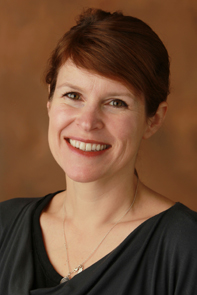 BSCI 220: Biochemistry
BSCI 220: Biochemistry
Cynthia Brame is a senior lecturer in the Biological Sciences department and an assistant director at the Center for Teaching. In BSCI 220, Cynthia helps students consider how metabolic pathways use common chemical reactions to allow organisms to derive energy from highly varied food sources—and how these food sources in turn can lead to regulation of various metabolic pathways in ways that are relevant to disease states. The class will consist of lecture interspersed with concept questions and small group interactions. In the post-class discussion, we will consider strategies Cynthia uses to promote an inclusive classroom.
Two visits are available:
Date: Wednesday, February 25th
Time: 9:10-11:00 (class: 9:10-10:00; discussion, 10:00-11:00)
Class location: Wilson 103
Discussion location: Wilson 216
Facilitator: Christian Ehret
Date: Friday, February 27th
Time: 9:10-11:00 (class: 9:10-10:00; discussion, 10:00-11:00)
Class location: Wilson 103
Discussion location: Wilson 216
Facilitator: Ben Galina
Nancy Chick, Affiliated Faculty in the English Department and Women and Gender Studies Program
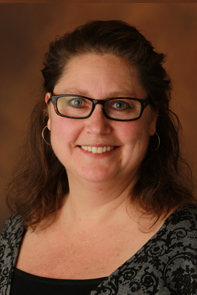 WGS 302: Gender and Pedagogy
WGS 302: Gender and Pedagogy
Nancy Chick is an assistant director at the Center for Teaching and affiliated faculty in the English Department and Women and Gender Studies Program. WGS 302 is the graduate pedagogy course orienting students to gender-conscious (and related) theories and practices of teaching in higher education. It encourages us to ask, “How do gender and other aspects of identity affect teaching and learning across the curriculum?” Come to see feminist pedagogy in action—and in content, as we “go meta” and talk about teaching. The issues we discuss in class (and afterward in our post-class conversation) will be relevant well beyond the WGS classroom.
Two visits are available:
Date: Tuesday, January 27th
Time: Class: 3:00 – 5:00 (Visit begins at 4; discussion, 5:00)
Class location: Buttrick 212
Discussion location: Buttrick 212
Facilitator: Dani Picard
Date: Tuesday, February 10th
Time: Class: 3:00 – 5:00 (Visit begins at 4; discussion, 5:00)
Class location: Buttrick 212
Discussion location: Buttrick 212
Facilitator: Ben Galina
Joe Bandy, Affiliated Faculty in the Department of Sociology
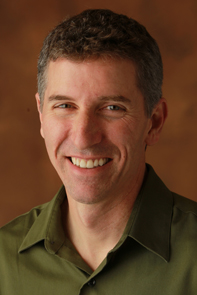 AMER201: Serving and Learning
AMER201: Serving and Learning
Joe Bandy is Assistant Director of the Center for Teaching and Affiliated Faculty in the Department of Sociology. American Studies 201: Serving & Learning is a course dedicated to exploring the relationship between community engagement and learning, focusing on the best ways to empower students and community in projects that co-create knowledge and meaningful change. Particularly important is that students begin to think critically about the ethics and complexities of community engagement, and place their interests in service into a larger social and historical context. Each student will work with a partner on a sustained community-based project that will be the basis of reflection and discussion throughout the class. Students therefore will play an active role in designing the readings, written assignments, and discussions to best serve their and their partner’s learning goals.
Two visits are available:
Date: Thursday, January 29th
Time: Class: 9:35-11:50 (Class: 9:35-10:50; discussion, 10:50-11:50)
Class location: Gillette 103
Discussion location: TBD
Facilitator: Vivian Finch
Date: Thursday, February 19th
Time: 9:35-11:50 (Class: 9:35-10:50; discussion, 10:50-11:50)
Class location: Gillette 103
Discussion location: TBD
Facilitator: Brielle Harbin
